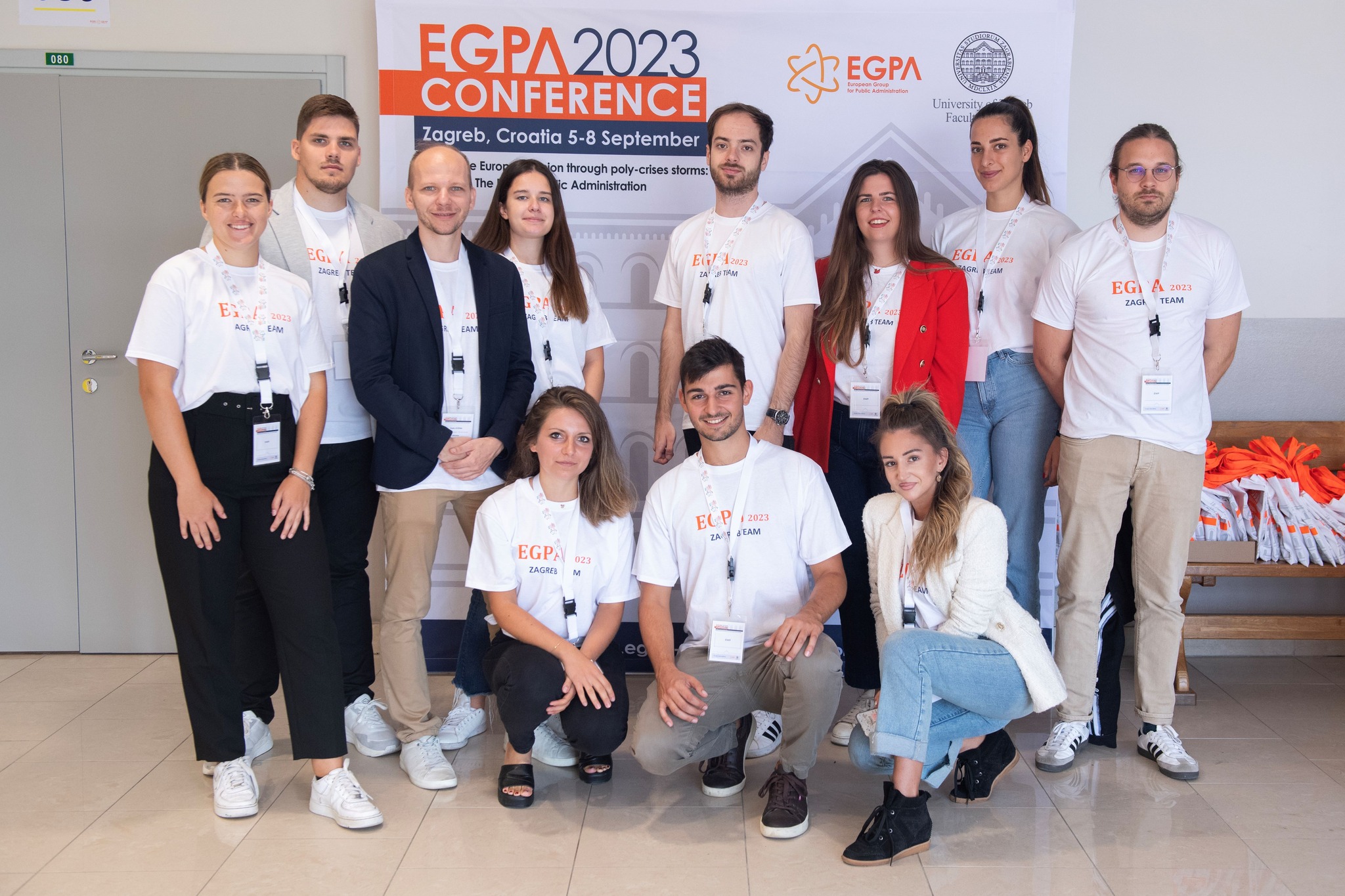The European Group on Public Administration (EGPA), which operates as one of the five sections of the International Institute of Administrative Sciences, has recently concluded its 45th annual conference, which was held from 5 to 8 September 2023 in Zagreb. The host of this year’s conference was the Faculty of Law, University of Zagreb. Due to the complete renovation and other spatial difficulties of the Faculty of Law, the conference was he ld at the premises of the Faculty of Forestry and Wood Technology of the University of Zagreb. It gathered more than 550 participants, professors, scientists, researchers and experts in the practice of public management from 42 countries, ranging from European countries to the USA, China, Brazil, Indonesia, South Korea, Qatar and Bahrain. The topic of this year’s conference was “Steering European Union through Poly-Crisis Storms: the Role of Public Administration”.
EGPA president Professor Jean-Michel Eymeri-Douzans said that “more than 550 leading scientists, practitioners and young researchers participated in the EGPA conference 2023. We held two plenary sessions, which were attended by Croatia’s Prime Minister Andrej Plenković, and by four ministers of public administration from the region, who discussed the main topic of the conference” Professor Eymeri-Douzans added that “we also talked about various topics that are dealt with by 23 permanent study groups, as well as other current topics in the area of administrative sciences”.
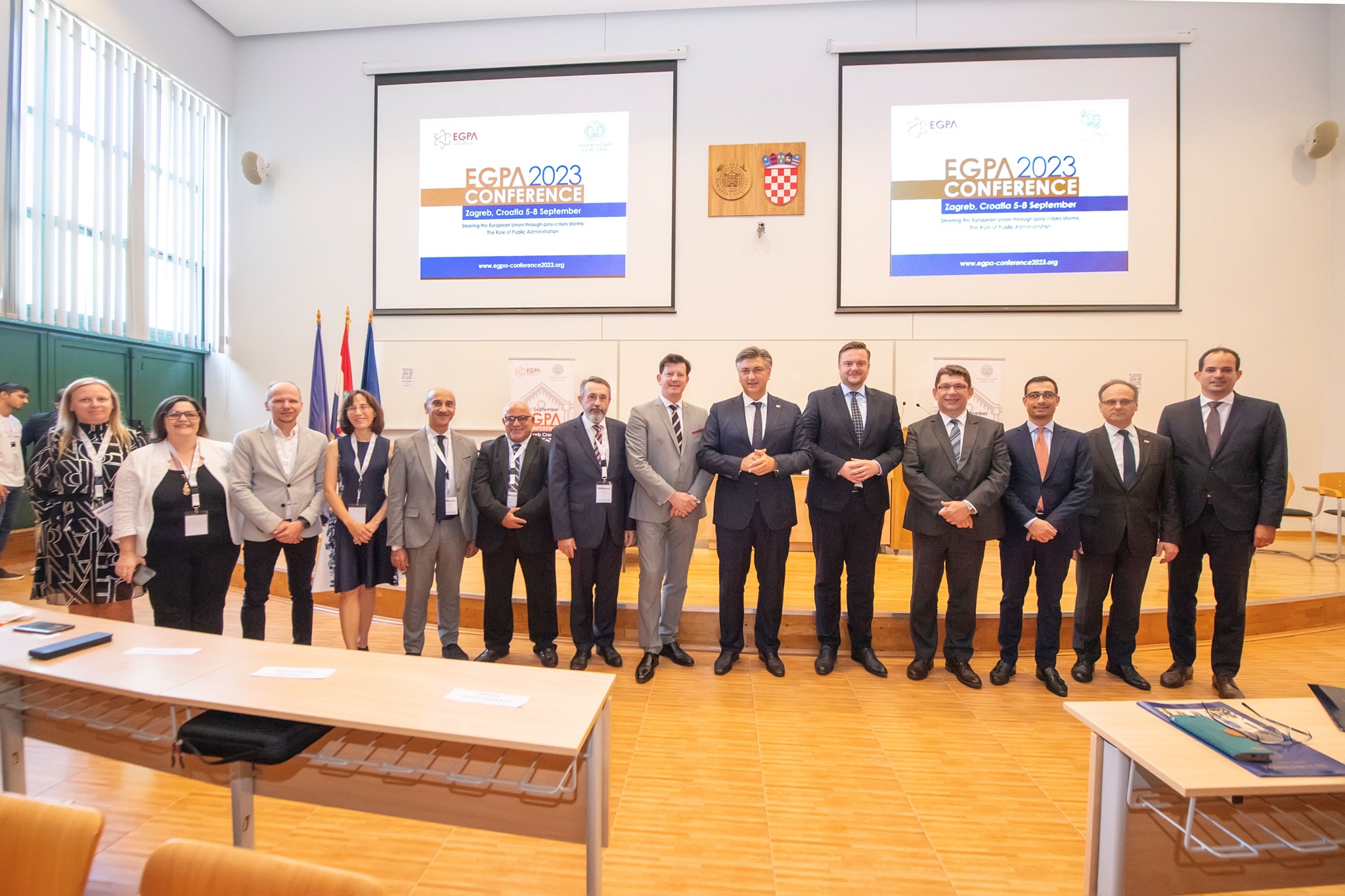
At the opening ceremony held on 6 September 2023 Croatia’s Prime Minister Andrej Plenković pointed out the complexity of crisis management, comparing it to playing chess simultaneously, which requires strong focus and brave decisions. The Prime Minister also emphasized the importance of cooperation with local authorities and praised the progress that Croatia has achieved in its functional and fiscal decentralization. “In that process, cooperation with the academic community is also important, especially in establishing a better legislative framework, and I am particularly glad that we have signed cooperation agreements with four law faculties at the initiative of Professor Koprić” Plenković said.
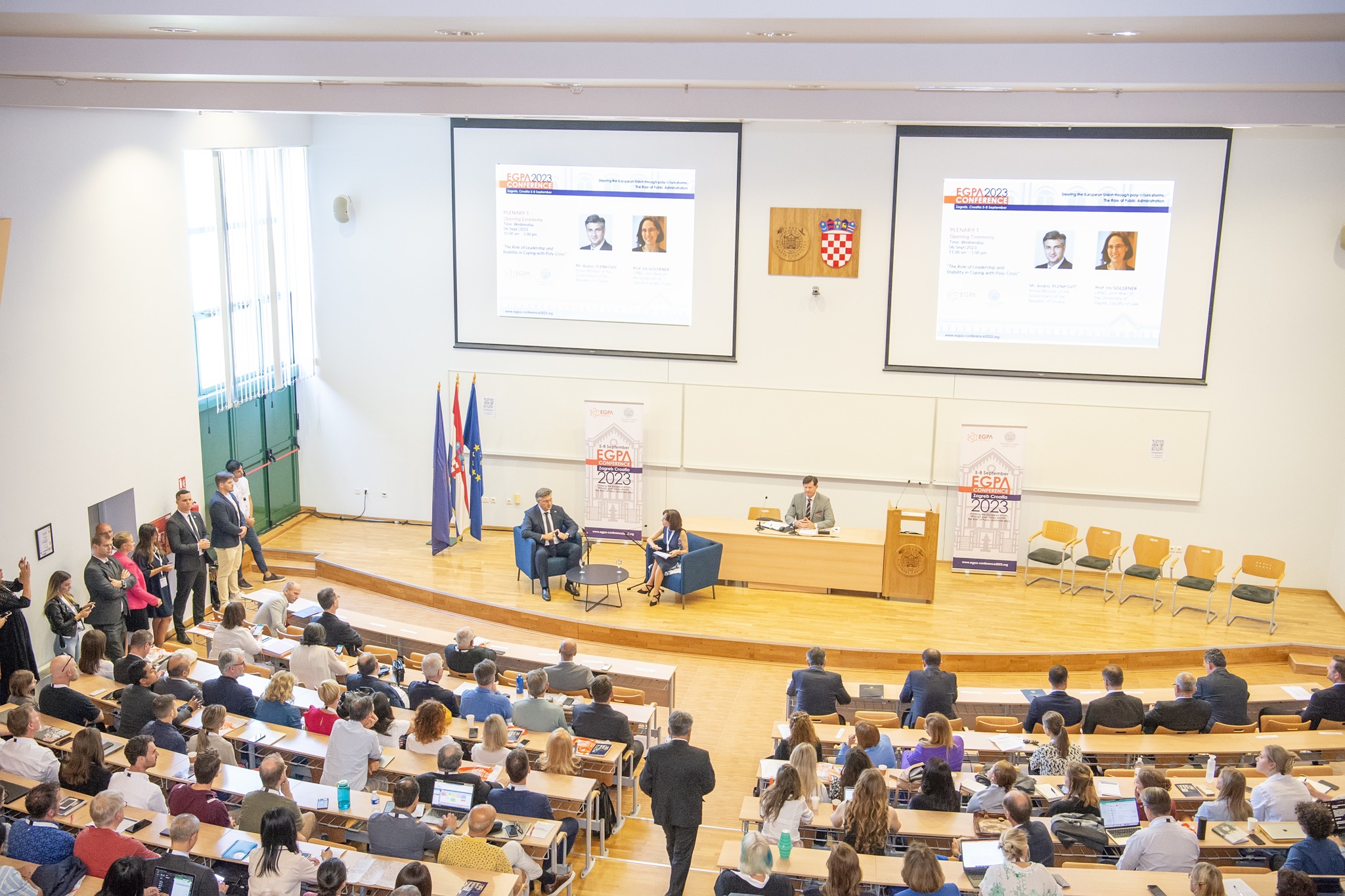
In the first panel discussion on the topic “Steering through Poly-Crises Storms: how to improve the agility, resilience and robustness of public administration”, the Minister of Finance of the Republic of Croatia, Dr. Marko Primorac pointed out that “Crises, which occur year after year, require political commitment, but also a deep understanding of their causes and the available tools with which the Government can respond to them. The cooperation with the academic community, in particular given the presence of many representatives from that sector at the conference, was crucial. Having moved from the Faculty of Economics to the Ministry of Finance myself, I would like to emphasize how important it is for researchers to use advanced analytical methods, but also to draw conclusions that are relevant and applicable in the real world.”
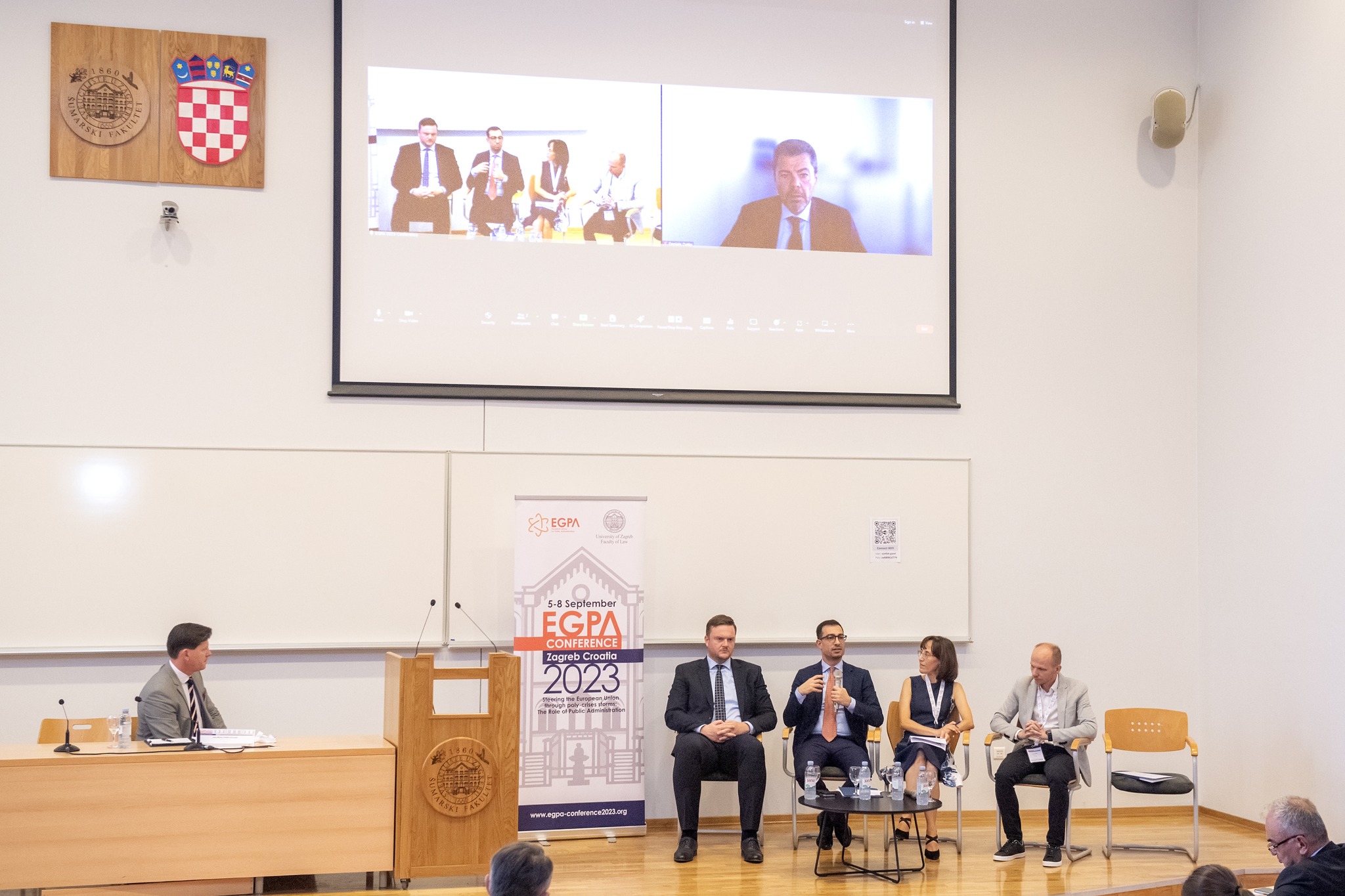
In the panel on The Public Administration Reform in Pre and Post-Accession Periods Croatia’s Minister of Justice and Administration Dr. Ivan Malenica spoke about the challenges facing public administration. “One of the most significant reforms in Croatian public administration, the preparation of the new Act on Salaries in Public Services, is crucial for the sustainability of public administration. Along with the new Act on Salaries, the focus is also on the management of human resources” Malenica said pointing out that “We have prepared and implemented the most significant reforms in the field of public administration in the last 30 years.” Minister Malenica emphasized the digital transformation of Croatia’s public administration after COVID stating that Croatia already had the e-citizen platform, whose use was limited. However, upon the COVID pandemic outbreak, the platform’s users base expanded to more than a million. In response, Minister Malenica pointed out, several digitization projects were launched through the National Recovery and Resilience Plan.
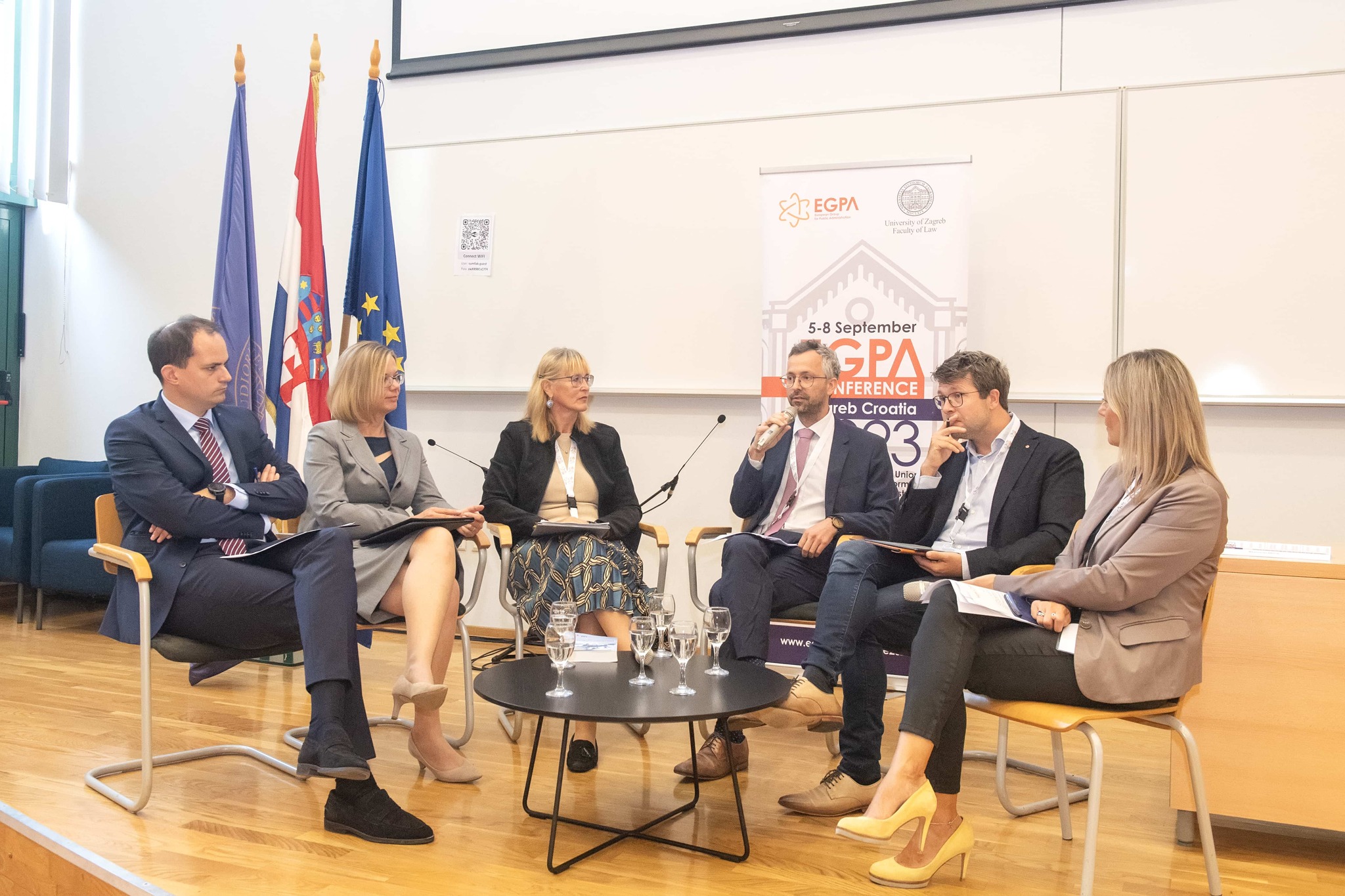
Professor Ivan Koprić, Dean of the Faculty of Law in Zagreb, emphasized the importance of reaffirming the value of the rule of law and professionalism in public administration. “The crises we have been through in recent years, from the migrant, security and food crisis to the health and energy crisis, have shown that public administration that is not professional – without enough staff, well and appropriately educated experts and that does not adhere to the standards of the rule of law and legality – simply cannot adequately respond to challenges. The Faculty of Law offers a number of study programs and forms of lifelong education for public administration, with which it strives to contribute to professionalization and the achievement of standards of the rule of law,” Dean Koprić said.
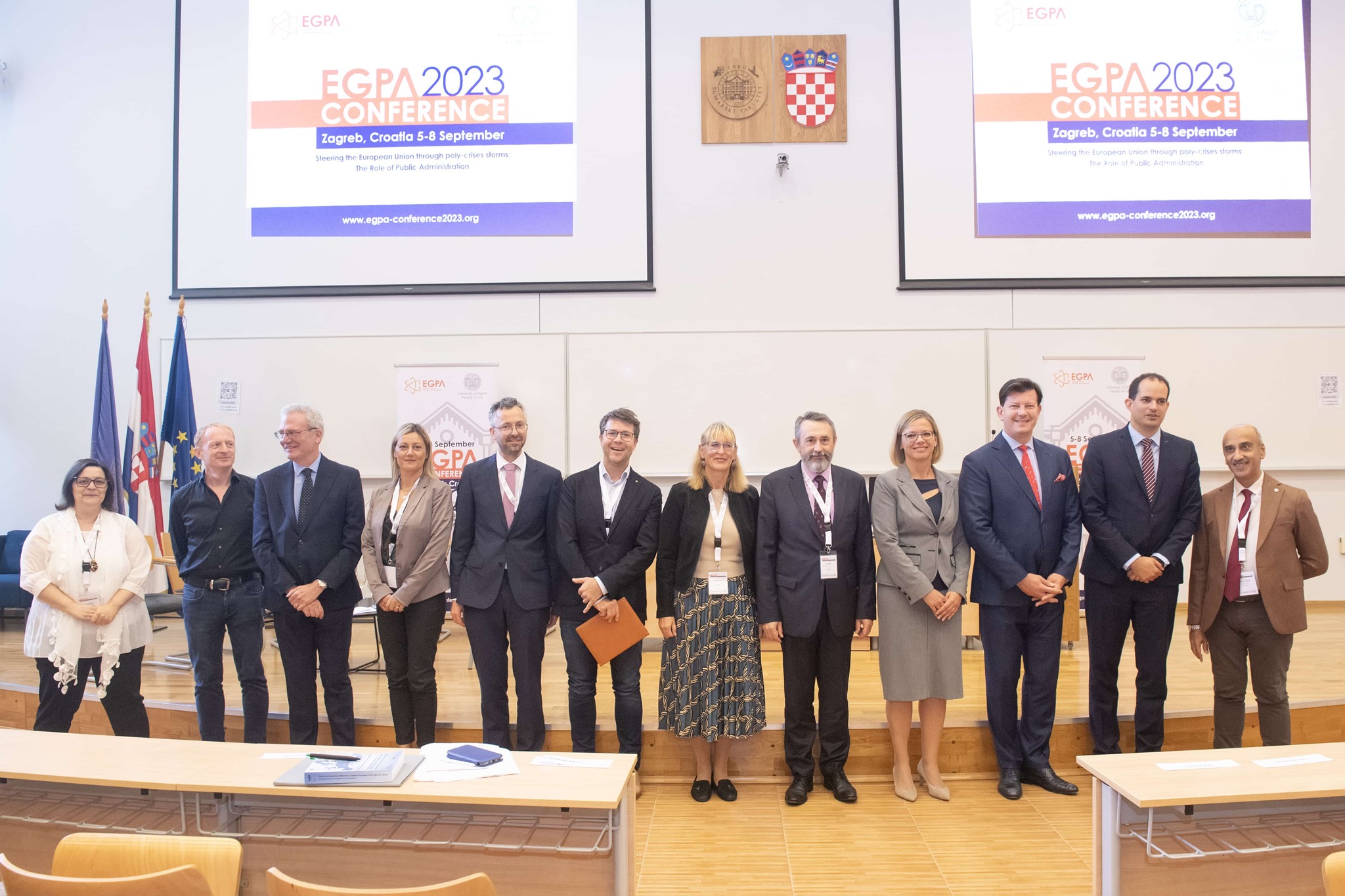
As commented by IIAS Scientific Director and EGPA Executive Secretary Dr. Fabienne Maron “This year’s EGPA conference has strengthened the dialogue between high-ranking government officials, public administration experts, scientists and researchers about the real problems facing public administration, in order to generate the best ideas and concrete solutions”. Maron concluded that “in the future, we will strengthen this approach and pay attention to specific issues at all levels of governance”.
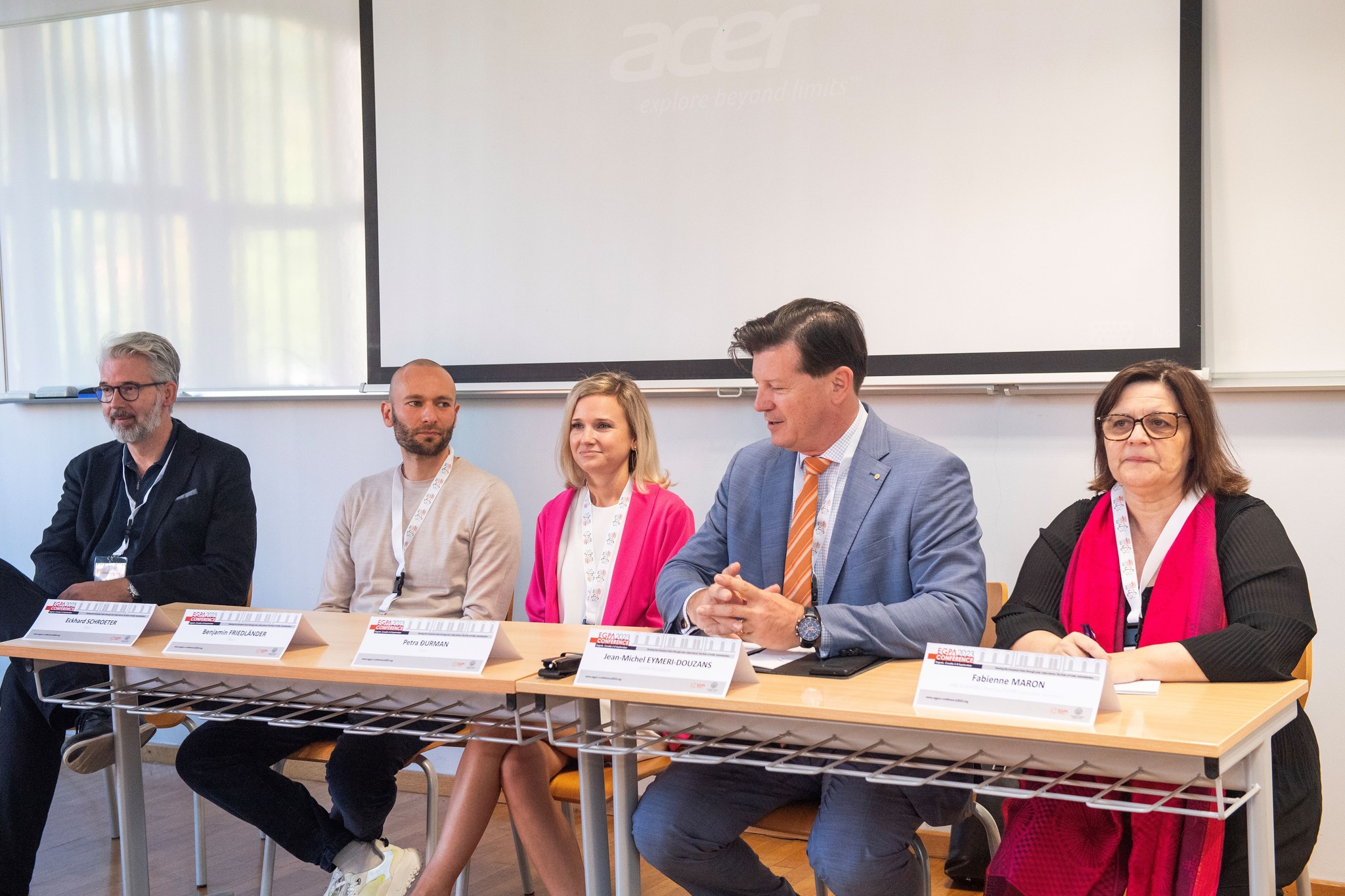
A number of panels, workshops, seminars and study group meetings were held as part of the conferences outside the plenary sessions, led by distinguished public administration experts. At the conference, 140 sessions of permanent study groups were held on the topics of crisis management, the relationship between law and administration, the rule of law, citizen participation in public administration, e-administration, quality and performance of public administration, administrative services, social economy and public administration, engaged research in public administration, etc. The results of 420 scientific research papers written by the participants were presented. Two panels were held in French, wheeras a special symposium led by Professor Eckhard Schröter, Professor Benjamin Friedländer and Assistant Professor of the Faculty of Law in Zagreb Petra Đurman, was held with the participation of 23 young researchers and doctoral students under the methodological guidance of Professor Benoît Rihoux.
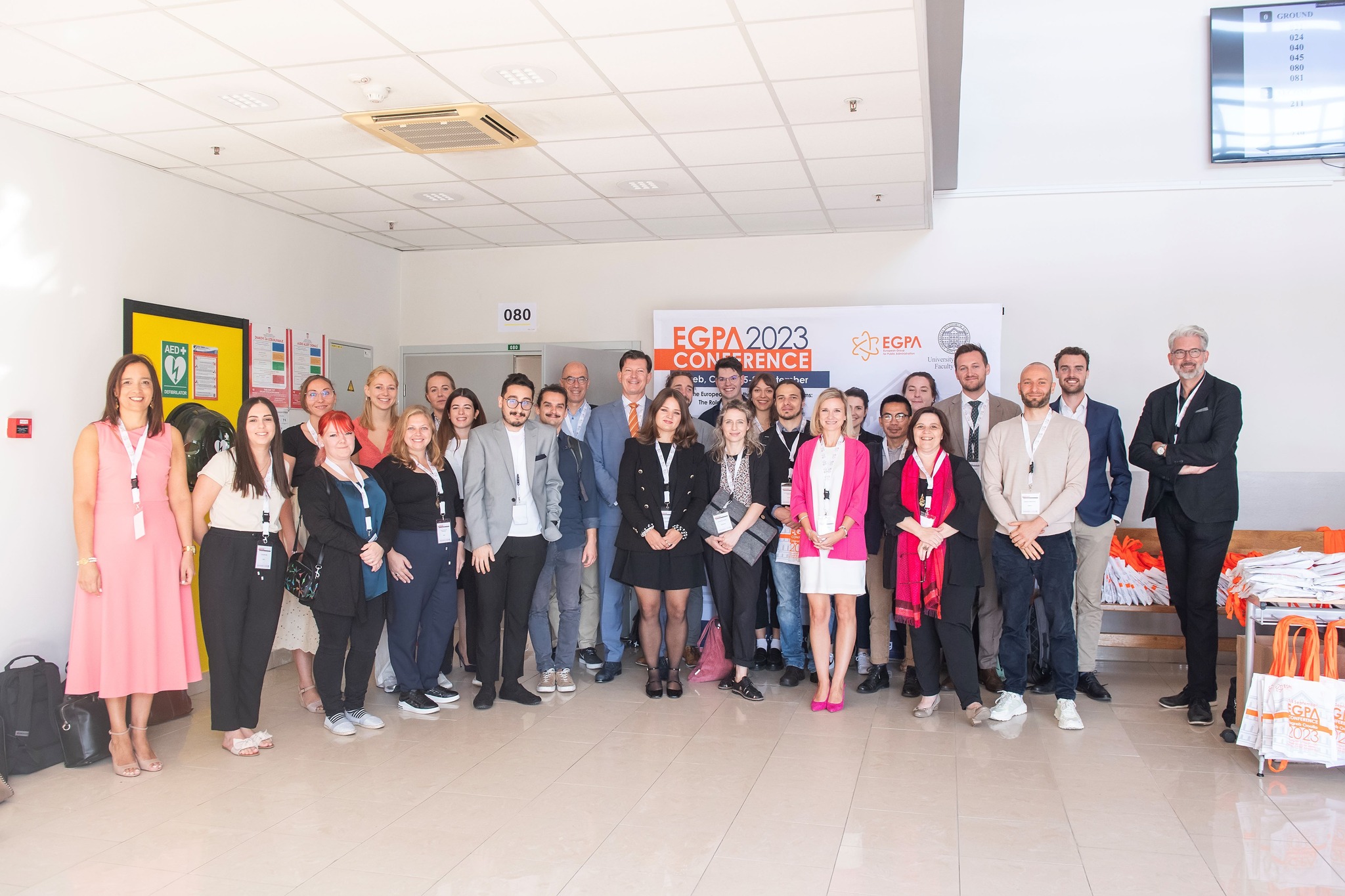
The conference generated great interest and emphasized the importance of improving research, administrative education and the practice of public administration in a world that is changing rapidly, and going through frequent deep crises. It also attracted considerable attention on social networks, where participants shared their experiences and insights. Dr. Ian Elliott, Chair of the Standing Study Group on Executive Education, tweeted: “What about #EGPA2023? A beautiful country, a great organization, stimulating discussions, high-profile keynote speakers, a cheerful gala dinner, I could go on and on! Thanks to Ivan Koprić, the entire local organizing team and of course the entire EGPA/IIAS team.”
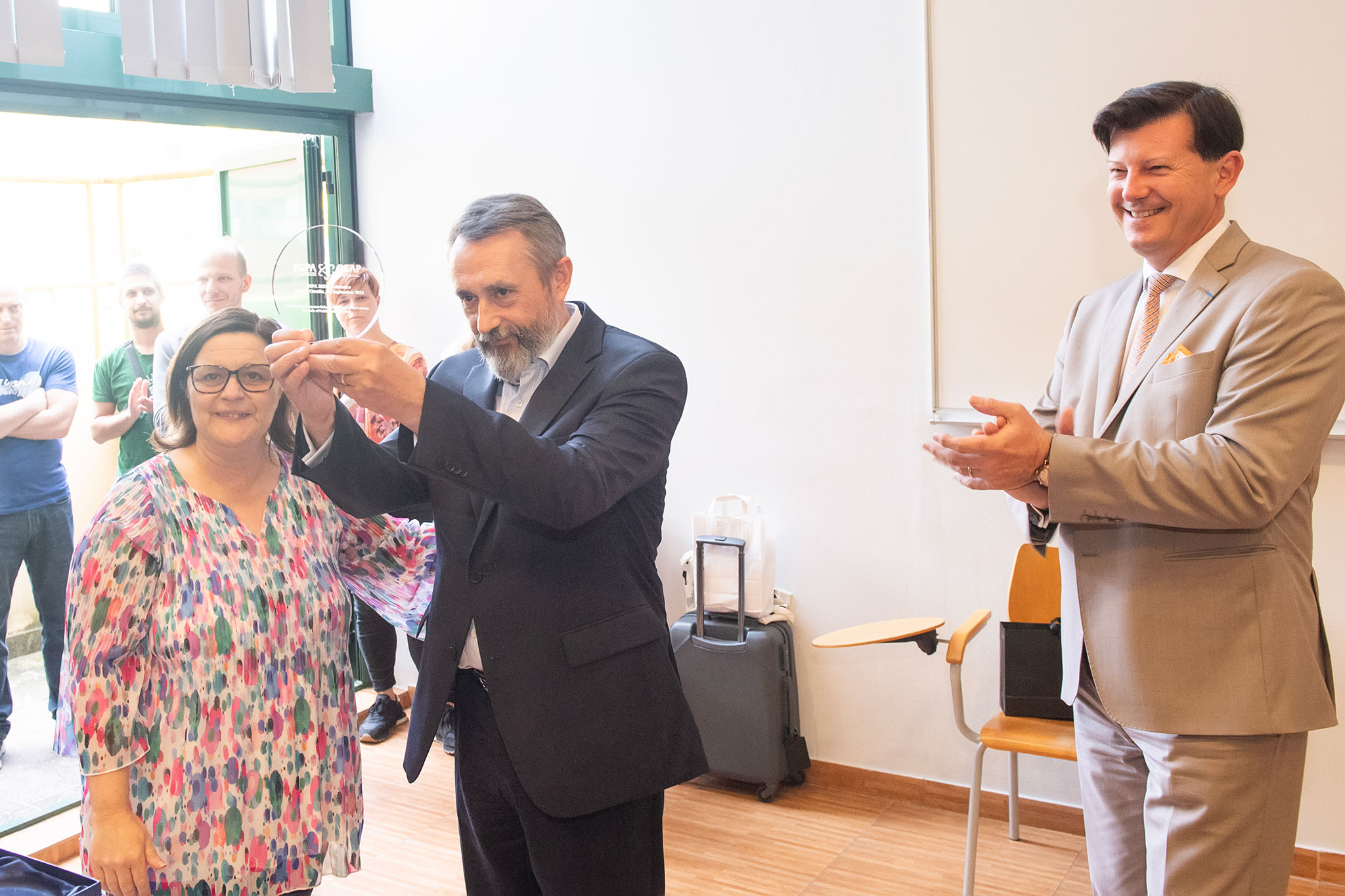
Dr. Albert Meijer, Chair of the Standing Study Group on eGovernment, commented: “We had wonderful presentations and discussions in our eGovernment Study Group at #EGPA2023. Many thanks to all presenters and discussants! We also thank the organizers from Zagreb! We look forward to seeing you all in Athens at #EGPA2024.”
Best paper awards
Several prestigious awards for outstanding research contributions were awarded during the conference. The “Christopher Pollitt” award for the best article in 2021 by one of the oldest and most prestigious journals in the field of public administration, the International Review of Administrative Sciences, was won by the authors Jörn Ege, Michael W. Bauer and Nora Wagner for the paper “How do international officials influence policy outcomes?” A Study of Managerial Influence Strategies in International Organizations”. The e-Government Permanent Study Group Award for Best Paper went to the authors of the paper “What Happens Behind the Data: An Ethnography of Police Data”, with Isabelle Fest as lead author. Furthermore, the Best Young Researcher Award 2023 of the Standing Study Group on Staff Development Policies in Public Administration was awarded to Martin Sievert, Dominik Vogel and Matthias Döring for the paper “The relevance of gendered language in public sector job advertisements for recruitment processes and outcomes”.
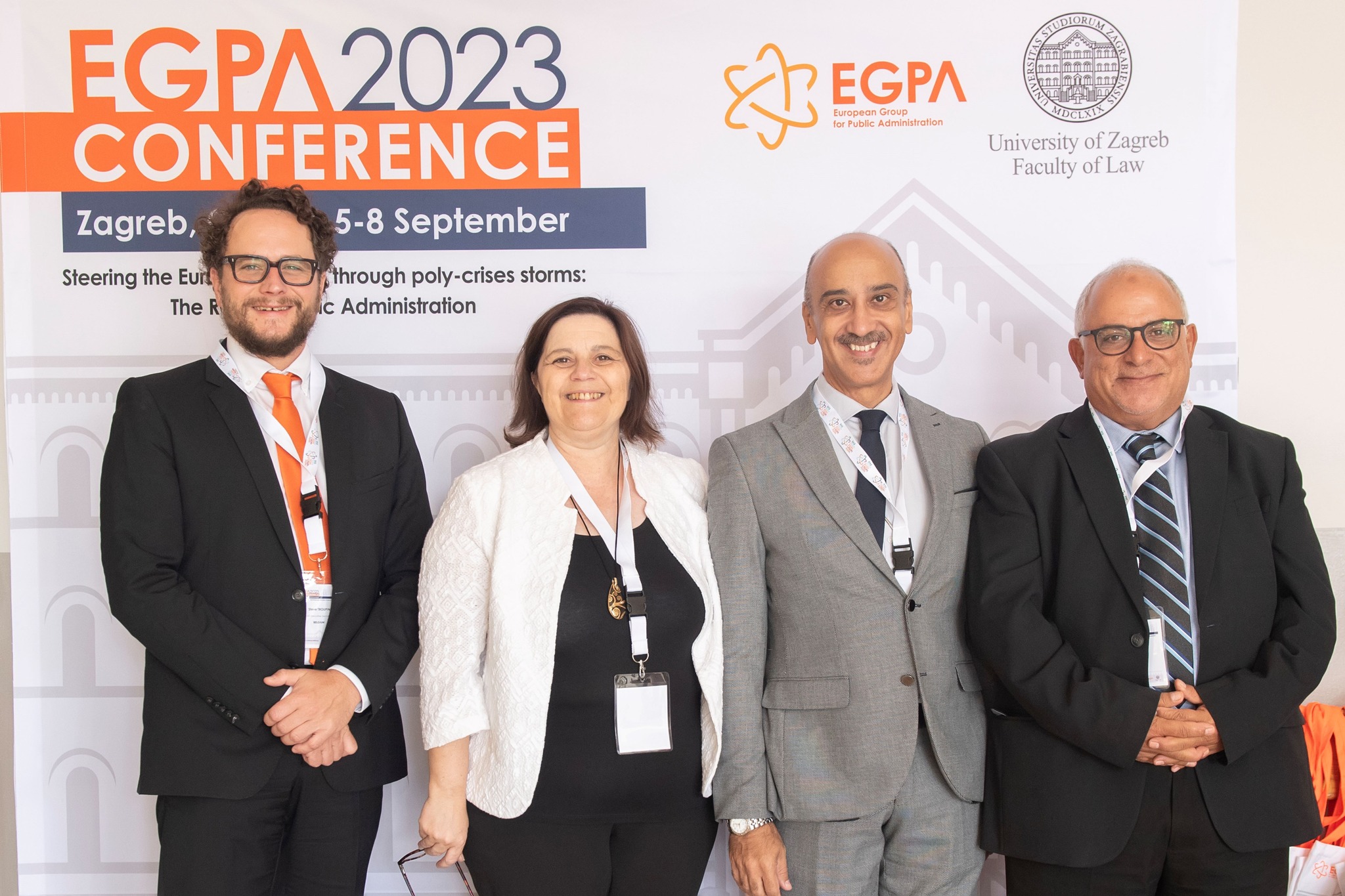
About the EGPA conference
Founded in 1975, EGPA continues to be a dynamic platform promoting collaboration among European and global professors, researchers, expert-practitioners and young scholars engaged in public administration. Operating under the International Association for Administrative Sciences (IIAS), EGPA facilitates intellectual dialogue through plenary discussions, seminars, symposia, panels and workshops within its 23 permanent study groups.
The EGPA conference held in Zagreb will be remembered for its content richness, stimulating discussions, the cooperation among participants from Europe and the world, and the confirmation of its role in the improvement of public administration. The conference reinforced the belief that the managing of crises and improving public governance require harmonised, reasoned and well-prepared efforts.
For all those who missed it, the opening ceremony is available on the IIAS YouTube channel, where you can watch Croatia’s Prime Minister Andrej Plenković answer the questions by the moderator, Professor Iris Goldner Lang, vice dean of the Faculty of Law, and get an insight into the inspiring discussions held at this conference.
A special thank you note
Finally, a special thanks goes to the Zagreb team led by Professor Ivan Koprić for the excellent cooperation and nice atmosphere while hosting the EGPA conference 2023! EGPA and IIAS extend their gratitude to all the chairs, speakers and participants who contributed to the success of this conference.
